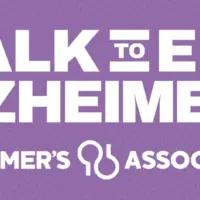(NEW YORK) — Insomnia is a common sleep disorder that makes it hard to fall asleep, stay asleep or get restful sleep. It affects nearly 15% of American adults each month, according to the Centers for Disease Control and Prevention.
The American Academy of Sleep Medicine says the generally recommended insomnia treatments include medications, psychological therapy and behavioral modification. Until now, there was insufficient evidence to suggest that exercise and other healthy lifestyle habits might benefit sleep, according to researchers.
In a new review published in the BMJ Evidence-Based Medicine journal, researchers analyzed 22 previously published studies involving over 1,300 patients, confirming that cognitive-based therapy — which focuses on helping people change unhelpful thoughts and habits– is the gold standard for insomnia treatment. But it also found that yoga, tai chi and walking or jogging and other gentle approaches to exercise are effective as well.
“Insomnia can impact everyday life and increase the risk of cardiovascular diseases [like heart disease and stroke] and Alzheimer’s… and exercise is nature’s sleeping pill,” Dr. Zhijun Bu, the lead author of the study and master student at Beijing University of Chinese Medicine, told ABC News.
Researchers also found cognitive behavioral therapy, tai chi, yoga or a mix of aerobic activities like walking, jogging and cycling all improve sleep, including total sleep time and how long it takes to fall asleep. All of these activities also helped people slumber more soundly and wake up less often during the night.
In some instances, exercise may be even more helpful than therapy, the researchers say.
Yoga improved the total sleep time by nearly two hours, and a combination of cardiovascular activities helped people nod off almost 30 minutes faster, the new research says.
Bu recommended people who live with insomnia try a bunch of different exercise activities to see which one works best for them. For someone who doesn’t sleep enough or who has trouble getting to sleep and staying asleep, yoga and tai chi may do the trick, he said. For those who are still fatigued throughout the day due to lack of sleep, walking or jogging may be a better option, he added.
The benefits from tai chi and cognitive-based therapy persisted for up to two years, the study found. The benefits of aerobic activity paired on its own or paired with strength exercises, lasted up to seven months.
Previous studies have shown that moderate intensity exercise, like brisk walking or jogging done regularly and for a steady duration, may lead to better sleep, but high intensity exercise like sprinting and heavy lifting may not.
Since gentle workouts like yoga, tai chi and walking have minimal side effects and most people can do them easily, Bu contends they are good choices to help combat insomnia.
“Our research shows people of all ages and genders can observe the sleep benefits of exercise,” Bu added. “We hope our findings can lead to further changes within public health.”
Dr. Allen Chang is a Geriatric Medicine subspecialist at Dalhousie University and a member of the ABC News Medical Unit.
Copyright © 2025, ABC Audio. All rights reserved.















